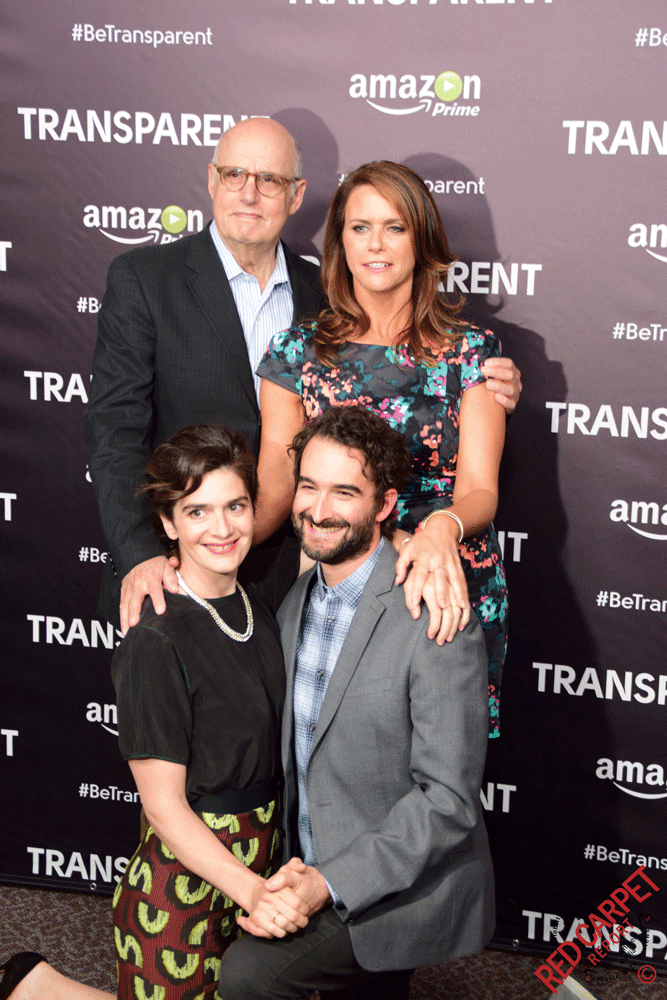
Emmanuel Alcantar
Last Saturday, the Carsey-Wolf Center held a screening of two episodes from the award-winning television series “Transparent” at the Pollock Theater as part of its Trans Media series. The episodes screened were the ninth episode of the second season, “Man on the Land,” and the first episode of the third season, titled “Elizah.” Moderator and Professor Patrice Petro was joined by Professor Amy Villarejo from Cornell University to discuss the episodes in a post-screening Q&A.
The series follows Maura Pfefferman as she comes out to her family as transgender and how her transition impacts her and her three adult children. Throughout the series, they each discover new facets about themselves and each other.
Despite not having seen every episode of “Transparent,” the episodes screened were accessible. I still found myself laughing at the surprisingly dark humor and sympathized greatly with the main character.
Professor Amy Villarejo called the series “revolutionary,” but was not afraid to critique it and defend the series’ “whiteness.” When talking about the show, she said it was complicated because it was “semi-autobiographical.” “She’s not to be blamed for the origins,” Villarejo said, referring to series creator/writer/director Jill Soloway. She admitted that it was problematic, but still praised Soloway, because she created a trans production and was giving “a leg up on people who have been marginalized.”
The show is not just about identity but also family. Professor Petro asked Villarejo what she thought about that particular thematic element in the show and why “Elizah” decides to stray from it. Villarejo prefaced her answer by humorously noting that many people talk about the Pfeffermans “as if they’re real” and that some steps should be taken before attempting to psychoanalyze the characters. “It’s about how you generate conflict” she said. Part of the complex family dynamics in the show have to do with the target demographic, which is upper-middle class people who are over 45. “For the generic foundations, this is meant to speak to the family,” she states.
There was also a discussion on the representation of feminists and the significance of the character of Leslie, played by Cherry Jones, in this discussion. “I have to admit to being completely seduced by Cherry Jones,” Villarejo joked as she answered the question. Part of the answer is that Leslie’s conversation with Maura in the episode serves as a condemnation of Maura’s actions in her past identity. “She’s commenting on Mort’s (Maura’s) own exploitative behavior” towards some of her female colleagues when she was a professor, before she came out as trans. In “Man on the Land,” we see Leslie confront Maura on her privilege during a festival that she attends with her two daughters, Ali and Sarah. She is also supposed to be a commentary on “second-wave feminism and its aftermath.” However, the discourse in the show is not completely grounded in current discussions of feminism, as Villarejo commented that Leslie’s actions are “manipulative.”
When it comes to its discussions on privilege, “Transparent” is “not entirely successful in critiquing its own vectors of privilege,” Villarejo admits. Maura repeats many of her same mistakes without any critical commentary, and the show still presents an upper-middle class vision of the world. On the other hand, she says “there’s a real healthy regard for forms of curiosity and learning.” There are real values that the series is exploring, in addition to an exploration of the consequences to having that kind of curiosity. Professor Petro also notes that despite the series’ mixed results in addressing its own privilege, there are “many poignant moments where Maura’s privilege is undermined.”
The audience really sympathizes with her in those situations, because of how beautifully the show is written. “She has a lot to learn,” Villarejo says, “and that is very moving.”










